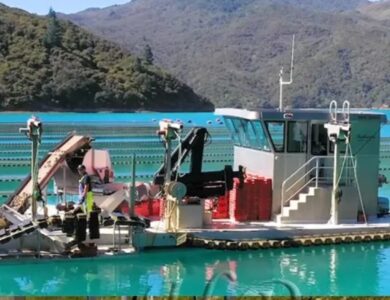5 Essential Skills Every Facilities Manager Should Have

Facilities managers play a vital role in ensuring the smooth operation of a facility and the overall well-being of its occupants. To excel in this multifaceted position, there are several essential skills that every facilities manager should possess. These skills go beyond technical knowledge and encompass areas such as communication, leadership, problem-solving, and adaptability. In this article, we will explore five key skills that are crucial for the success of any facilities manager.
Effective Communication:
Communication is paramount when working with a facilities management company. Facilities managers need to be able to clearly articulate their ideas, expectations, and instructions to a wide range of stakeholders, including employees, contractors, and senior management. They must possess excellent verbal and written communication skills to convey information accurately and efficiently. Moreover, active listening is equally important, as it allows facilities managers to understand the needs and concerns of their team members and building occupants. Strong communication skills foster collaboration, ensure effective coordination, and build trust among all parties involved.
Leadership and Team Management:
Facilities managers are responsible for leading and managing diverse teams, including maintenance staff, contractors, and vendors. Effective leadership skills are essential to motivate and inspire team members, set clear goals, and delegate tasks efficiently. A strong facilities manager should possess the ability to make informed decisions, provide guidance, and mentor their team members. They should foster a positive work environment that encourages growth, collaboration, and a strong work ethic. By cultivating a culture of teamwork and excellence, facilities managers can drive their teams towards achieving organizational objectives.
Problem-Solving and Critical Thinking:
Facilities management often presents various challenges that require quick thinking and problem-solving skills. Facilities managers should be adept at identifying and analyzing problems, developing innovative solutions, and implementing effective strategies. They must possess strong critical thinking skills to evaluate situations, anticipate potential issues, and make informed decisions. The ability to think creatively and adapt to changing circumstances is invaluable in facilities management, as it allows managers to overcome obstacles and ensure the uninterrupted operation of the facility.
Financial Management:
Facilities managers are entrusted with managing budgets, allocating resources, and ensuring cost-effective operations. Sound financial management skills are crucial to effectively plan and control expenditures, negotiate contracts, and optimize procurement processes. By monitoring costs, identifying opportunities for savings, and implementing efficient financial strategies, facilities managers contribute to the financial sustainability of the organization. A solid understanding of financial principles and the ability to analyze data are key skills that enable facilities managers to make informed financial decisions.
Adaptability and Flexibility:
Facilities management requires the ability to adapt to ever-changing environments and circumstances. Facilities managers should be flexible and agile in their approach, as they may encounter unforeseen challenges or urgent situations. Adapting to new technologies, industry trends, and regulatory requirements is essential for staying ahead in the field. By embracing change and proactively seeking opportunities for improvement, facilities managers can drive innovation, enhance operational efficiency, and ensure the facility’s ability to meet evolving needs.
Conclusion:
The role of a facilities manager encompasses a wide range of responsibilities, requiring a diverse skill set. Effective communication, leadership, problem-solving, financial management, and adaptability are among the core skills that every facilities manager should possess. Developing these skills not only enhances the individual’s ability to perform their role effectively but also contributes to the overall success of the facility and the satisfaction of its occupants. By continuously honing these essential skills, facilities managers can elevate their performance, drive operational excellence, and make a positive impact on the organization they serve.



